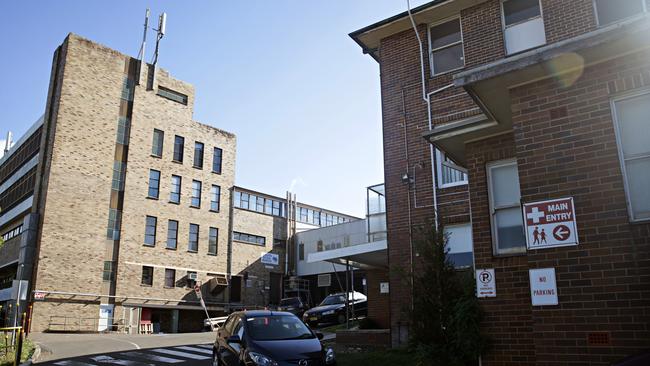Australia’s first hospice for young adults coming to Manly Hospital
THE first hospice for young adults in Australia has been confirmed for Manly Hospital, with the State Government committing to $2 million a year towards its operation.

Manly
Don't miss out on the headlines from Manly. Followed categories will be added to My News.
THE first hospice for young adults in Australia has been confirmed for Manly Hospital, with the State Government committing to $2 million a year towards its operation.
The hospice, a similar model to Bear Cottage, would cater for young adults “who have graduated from Bear Cottage”, for whom there was currently no available service, Manly MP James Griffin said.
There is also a 10-bed palliative care unit planned for Mona Vale Hospital site, which would cater to the broader community.
“I’m backing those in our community who would love to see the first-ever Australian adolescent and young adult hospice located within the Manly Hospital site,” Mr Griffin said.

“We have engaged experts to assist in forming a strategy on how the young adult hospice can become a reality.”
While the State Government has committed to $2 million a year, Mr Griffin said a business case needed to be determined to see how much it would cost to build and run.
“We need to get that plan back from the experts we have engaged and determine how we can go about raising those funds,” he said.
Philanthropical contributions would be needed to get it up and running.
“There is a great role for the community to play, as they did with Bear Cottage,” he said.
“That will be the next step, once the report comes back, to determine how we can make the adolescent and young adult hospice a reality.”

On Friday Mr Griffin said an important milestone had been reached in determining the vision for the Manly Hospital site, due to close this year.
He said the Manly Hospital Project Steering Advisory Committee (PSAC) had started a service needs analysis to identify and justify other potential health and wellbeing opportunities for the site.
“Building on the work of the former Manly Hospital Community Advisory Committee, we have commenced an evidence-based needs analysis to explore a range of health service opportunities to see if these can be accommodated as part of the future use of site,” Mr Griffin said.
IN OTHER NEWS
“At the same time, thorough site due diligence is underway including site surveys, heritage assessments, planning advice as well as geotechnical and contamination studies.”
The PSAC, which includes members of the former Manly Hospital Community Advisory Group alongside departmental representatives, will continue to provide advice on service opportunities, funding models, service providers and the development of the zonal masterplan.


